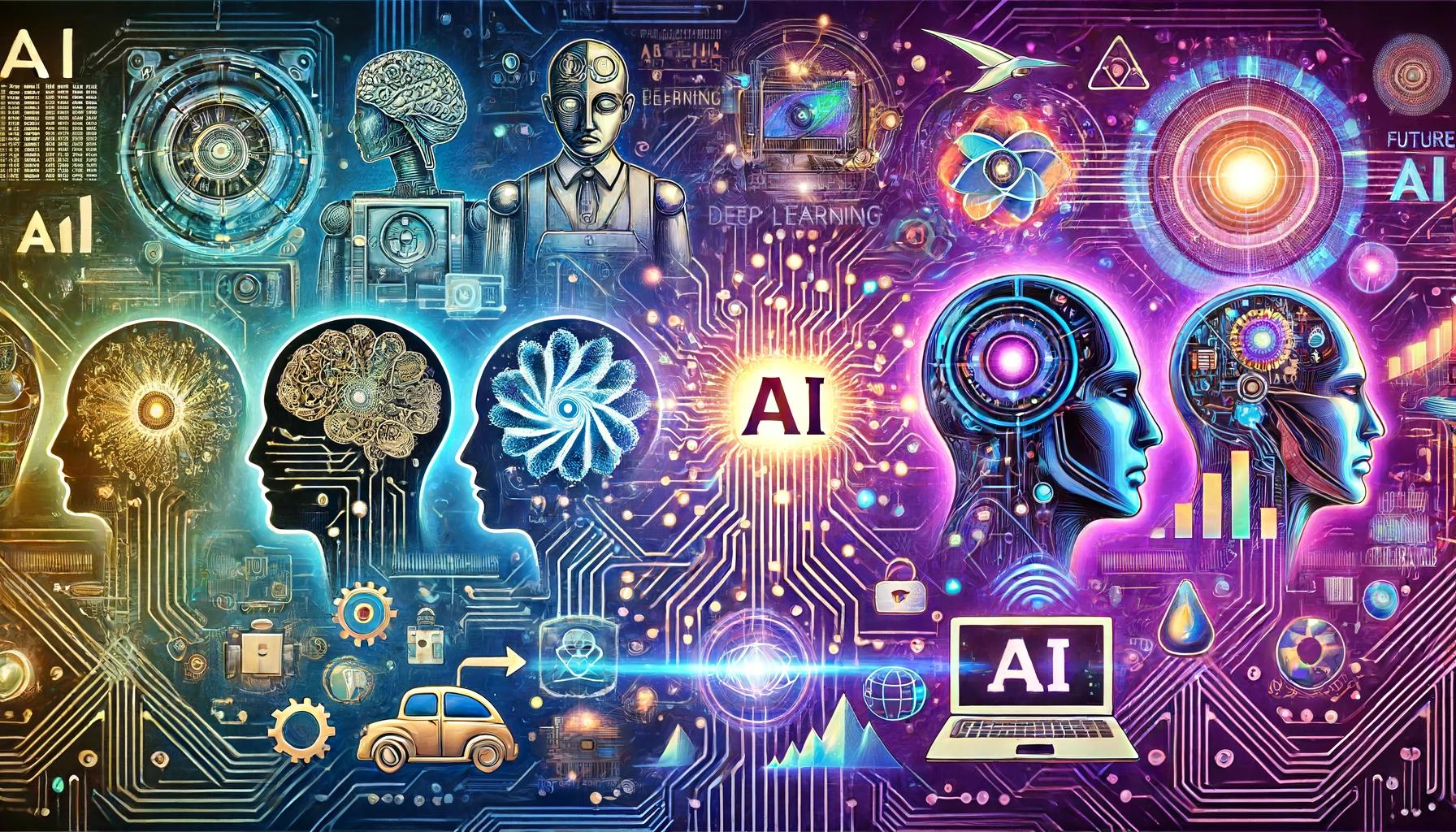Artificial Intelligence (AI) is revolutionizing the way we live, work, and interact with the world. From self-driving cars to virtual personal assistants, AI technologies are becoming increasingly integrated into our daily lives. This article explores the history, development, and various applications of AI, as well as its potential future impacts and the ethical considerations it raises.
A Brief History of AI
Early Beginnings
The concept of AI dates back to ancient times, with myths and stories of mechanical beings imbued with intelligence. However, the formal study of AI began in the 20th century. In 1956, the term “artificial intelligence” was coined by John McCarthy at the Dartmouth Conference, marking the birth of AI as a field of research. Early AI research focused on symbolic AI, which involved programming computers to perform tasks using formal rules and logic.
The AI Winter
Despite initial enthusiasm, progress in AI was slow and faced significant challenges, leading to periods known as “AI winters” in the 1970s and 1980s. During these times, funding and interest in AI research dwindled due to unmet expectations and limited computational power.
The Resurgence
The turn of the 21st century brought about a resurgence in AI, fueled by advancements in machine learning, increased computational power, and the availability of large datasets. Notable breakthroughs, such as IBM’s Watson winning Jeopardy! in 2011 and Google’s DeepMind defeating the world champion in the game of Go in 2016, showcased the potential of AI and renewed interest in the field.
Key Technologies in AI
Machine Learning
Machine learning is a subset of AI that focuses on developing algorithms that enable computers to learn from and make predictions based on data. It includes various techniques such as supervised learning, unsupervised learning, and reinforcement learning. Machine learning has been instrumental in the development of applications like recommendation systems, image recognition, and natural language processing.
Deep Learning
Deep learning, a subset of machine learning, involves neural networks with many layers (deep neural networks). These networks are capable of learning complex patterns and representations from vast amounts of data. Deep learning has achieved remarkable success in fields such as computer vision, speech recognition, and language translation.
Natural Language Processing (NLP)
NLP is a branch of AI that focuses on the interaction between computers and humans through natural language. It involves tasks such as speech recognition, sentiment analysis, and machine translation. NLP has enabled the development of virtual assistants like Siri and Alexa, as well as language models like GPT-4.
Applications of AI
Healthcare
AI is transforming healthcare by improving diagnostics, personalizing treatment plans, and enhancing patient care. AI-powered tools can analyze medical images, predict patient outcomes, and assist in drug discovery.
Finance
In the financial sector, AI is used for fraud detection, algorithmic trading, and personalized banking services. AI algorithms can analyze vast amounts of financial data to detect suspicious activities and predict market trends.
Transportation
AI is driving innovation in transportation, with developments in autonomous vehicles, traffic management, and logistics optimization. Self-driving cars, powered by AI, have the potential to reduce accidents and improve traffic flow.
Entertainment
AI is also making waves in the entertainment industry, with applications in content creation, recommendation systems, and virtual reality. AI algorithms can generate music, create visual art, and recommend personalized content to users.
Ethical Considerations
Bias and Fairness
AI systems can inadvertently perpetuate biases present in the training data, leading to unfair outcomes. Ensuring fairness and reducing bias in AI is a critical challenge that requires careful consideration and ongoing research.
Privacy and Security
The use of AI raises concerns about privacy and data security. AI systems often rely on large datasets, which can include sensitive personal information. Protecting this data and ensuring privacy is paramount.
Job Displacement
The automation of tasks by AI poses the risk of job displacement. While AI can create new job opportunities, it can also render certain jobs obsolete. Addressing this challenge involves reskilling workers and creating policies that support job transitions.
The Future of AI
Advancements in AI
The future of AI holds exciting possibilities, with advancements in quantum computing, AI ethics, and general AI. Researchers are working towards creating AI systems that can reason, learn, and adapt in ways similar to human intelligence.
Societal Impact
AI has the potential to significantly impact society, from improving healthcare and education to addressing global challenges like climate change. However, harnessing AI’s potential requires careful consideration of ethical, social, and economic implications.
Conclusion
Artificial Intelligence is a transformative technology that is reshaping various aspects of our lives. While AI offers numerous benefits, it also presents significant challenges that must be addressed. As AI continues to evolve, it is crucial to ensure that its development and deployment are guided by ethical principles and a commitment to the greater good.
4o

Leave a Reply